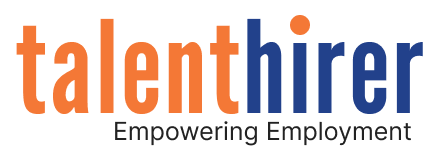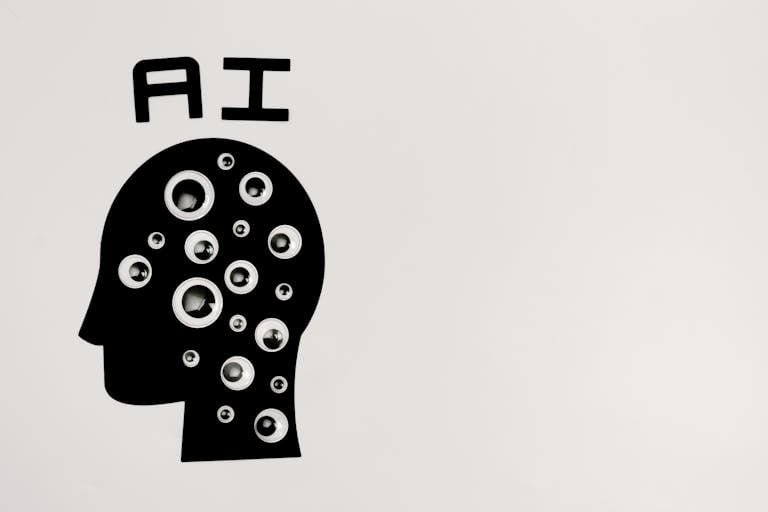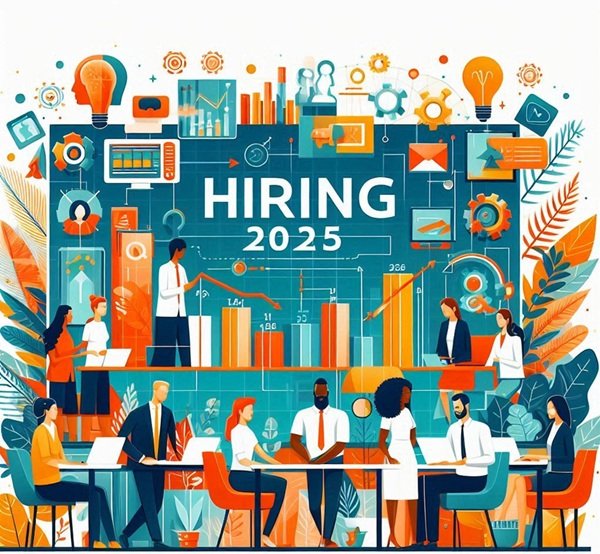Smart Factories & Smart Hiring: 5 Trends Shaping Manufacturing Jobs in 2025
Smart factories job market in 2025 is undergoing a major transformation. With the rise of automation, artificial intelligence (AI), and data-driven decision-making, traditional manufacturing roles are evolving. Industry 4.0 is reshaping how factories operate, and as technology advances, the need for tech-savvy professionals is more critical than ever.
This shift presents both challenges and opportunities for manufacturing companies looking to hire the right talent. Let’s explore the key hiring trends, emerging job roles, and critical skills that will define smart factories in 2025.
From Traditional to Smart Factories: A Paradigm Shift
Manufacturing was once driven by manual labor and assembly lines, but today’s smart factories integrate:
✅ Internet of Things (IoT) – Machines and sensors communicate in real-time, optimizing efficiency.
✅ AI & Machine Learning – Predicting equipment failures, automating quality control, and improving supply chains.
✅ Robotics & Automation – Reducing human intervention in repetitive and hazardous tasks.
✅ Cloud Computing & Big Data – Enhancing production by analyzing vast amounts of operational data.
This transformation is not about replacing workers—it’s about redefining their roles. As machines take over routine tasks, human workers will need new technical skills to operate, manage, and optimize smart factory systems.
5 In-Demand Jobs in Smart Factories
The manufacturing workforce of the future must be digitally skilled and adaptive. Some of the most in-demand roles in Industry 4.0 include:
1. Industrial IoT Specialists
IoT is at the core of smart factories. IoT specialists ensure that machines, sensors, and AI-powered devices work together seamlessly. Their responsibilities include:
🔹 Installing and maintaining connected factory systems.
🔹 Analyzing real-time machine data to optimize efficiency.
🔹 Enhancing predictive maintenance to prevent downtime.
2. Robotics Engineers
As automation expands, robotics engineers design, program, and maintain robotic systems. They focus on:
🔹 Developing AI-powered robotic arms for precision tasks.
🔹 Ensuring robotic collaboration with human workers.
🔹 Improving robotic mobility for warehouse and production efficiency.
3. Cybersecurity Analysts
With smart factories relying on cloud-based operations, the risk of cyberattacks increases. Cybersecurity experts protect sensitive factory data by:
🔹 Implementing cybersecurity measures for industrial networks.
🔹 Detecting and preventing data breaches.
🔹 Ensuring compliance with cybersecurity regulations in manufacturing.
4. Data Analysts & AI Experts
Manufacturing companies are leveraging big data and AI-driven insights to optimize production lines. AI experts help by:
🔹 Using predictive analytics to improve manufacturing efficiency.
🔹 Identifying production bottlenecks and recommending improvements.
🔹 Analyzing energy usage to reduce operational costs.
5. Sustainability Engineers
As companies move toward green manufacturing, sustainability engineers help reduce carbon footprints by:
🔹 Designing eco-friendly production methods.
🔹 Reducing waste and energy consumption.
🔹 Ensuring compliance with environmental regulations.
Critical Skills for Smart Factory Workers
To succeed in the modern manufacturing job market, workers need to develop both technical and soft skills:
✅ Technical Proficiency
Understanding automation, robotics, AI, and IoT systems is a must. Employees should be able to:
✔ Operate digitized manufacturing equipment.
✔ Interpret machine-generated data for decision-making.
✔ Troubleshoot smart factory automation issues.
✅ Problem-Solving Skills
With automation handling repetitive tasks, employees must focus on diagnosing and resolving production challenges in real time.
✅ Data Literacy & AI Integration
Manufacturing professionals must analyze AI-driven insights, interpret reports, and use predictive analytics to enhance efficiency.
✅ Adaptability & Continuous Learning
Technology evolves rapidly. Workers must continuously upskill and reskill to keep up with new smart factory technologies.
✅ Collaboration & Soft Skills
Since humans and machines work together, strong communication and teamwork skills are essential. Employees must coordinate with engineers, AI specialists, and factory managers to ensure smooth operations.
How Companies Can Attract the Right Talent
The transition to Industry 4.0 requires an overhaul in hiring strategies. Companies can attract top talent by:
🚀 1. Upskilling & Reskilling Programs
Investing in workforce training to equip employees with AI and automation skills.
🚀 2. Partnering with Universities & Technical Institutes
Collaborating with STEM-focused institutions to recruit fresh talent trained in modern manufacturing.
🚀 3. Using AI & Automation in Hiring
Employing AI-driven recruitment tools to screen and match candidates based on technical competencies.
🚀 4. Employer Branding & Talent Attraction
Positioning manufacturing as a high-tech industry to attract younger, digitally-savvy professionals.
🚀 5. Offering Competitive Compensation & Benefits
To retain top talent, companies must offer:
✔ Attractive salaries for high-demand skills.
✔ Flexible work arrangements for engineering and IT-related roles.
✔ Career growth opportunities through advanced training programs.
TalentHirer.com: Your Partner in Smart Hiring
At TalentHirer.com, we specialize in connecting manufacturing companies with top-tier talent. Whether you need AI specialists, robotics engineers, or cybersecurity analysts, we help you find the right professionals to power your smart factory transformation.
📩 Looking to build your future-ready manufacturing workforce? Contact Us today!!!







